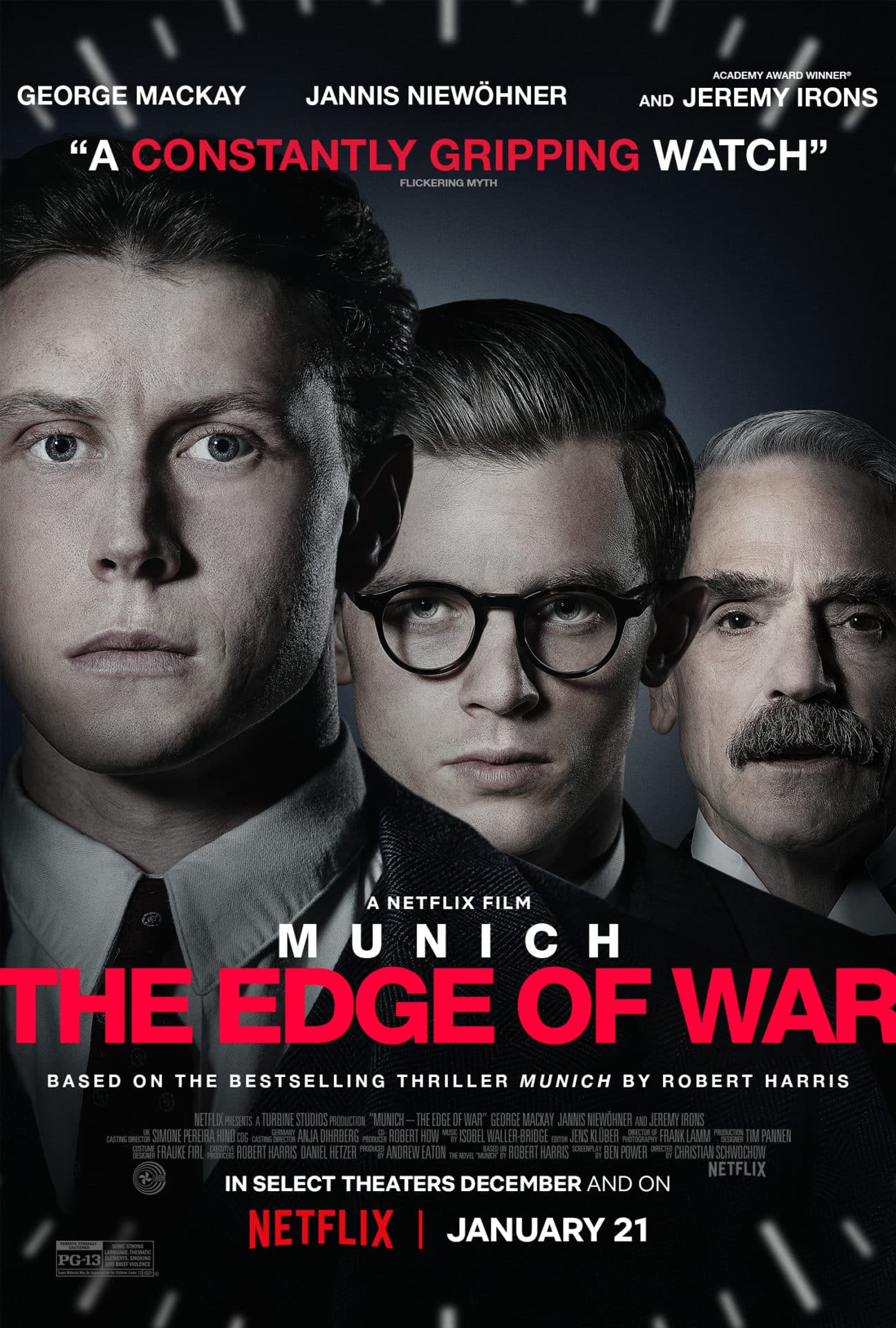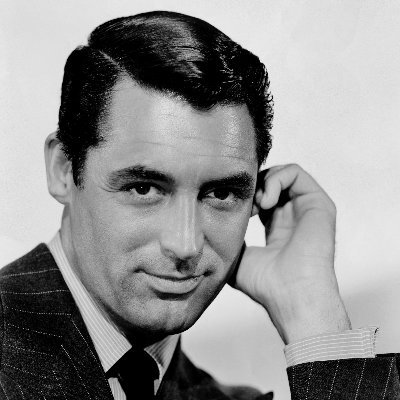
- Starring
- George MacKay, Jannis Niewöhner, Jeremy Irons
- Writer
- Ben Power
- Director
- Christian Schwochow
- Rating
- PG-13 (United States)
- Running Time
- 130 minutes
- Release Date
- January 21st, 2022 (Netflix)
Overall Score
Rating Summary
Munich: The Edge of War takes viewers right to the edge of World War II. Starting off in 1932, friends Hugh Legat (MacKay), Paul von Hartmann (Niewöhner) and his girlfriend Lenya (Liv Lisa Fries) celebrate their graduation from Oxford University. Hartmann insists they visit him in Munich to experience the “New Germany”. Over a six-year span, there is much debate within this film concerning the ethics of war and what the rise of Germany and Hitler’s movement comes across to starry-eyed individuals looking to make a difference.
The film doesn’t take long to set up some interesting questions and intrigue regarding what must’ve been a transfixing situation for a lot of young individuals not considering what the rise of Nazis would do to society. A great dinner table debate sets the tone early on, featuring a lot of philosophical debate that starts off intriguing but ultimately doesn’t pay off in a revealing enough manner. While it sets up some interesting discussion, the film doesn’t seem to know how to follow it up.
However, one thing that can be appreciated about the film was its attention to detail. This film feels in every sense like it is giving viewers a snapshot of what one might feel like as a young adult in early 1930s Europe, one with bright new prospects to fulfill. Meanwhile, the production design is gorgeous as the film’s look channels gritty spy features from the 1970s, creating quite a lot to appreciate.
The acting also adds another dimension. McKay as Legat proves he deserves his status as one of our great up-and-coming actors, just looking for that right part to put him over the top, while Niewöhner as von Hartmann is an eager new face to add some moral complexity to the status quo. Sandra Huller is also good, serving as a mediator of sorts as Helen Winter, while Alex Jennings as Sir Horace Wilson brings welcome gravitas to the scene that one only gets with seasoned veterans like him. But it’s Irons who leaves the biggest impression with his well-tuned performance as Neville Chamberlain, bringing an edge to his cowardice and being able to make you understand how things could and would get to the point they ended up in.
The biggest issue with the film was perhaps its set-up in that most already how it’s going to end. When one knows how something is going to end, it can become hard to build up enough suspense to sustain the whole watch. Indeed, the film feels like it could’ve lost around 10 minutes and still felt complete as it is. It would prove more compelling if it questioned why one would turn to supporting Nazism and von Hartmann does, but it’s more interested in the immediate consequences, which are interesting in their own way, but it feels like a facet of this movie was missing. Watching the dramatization of these events is captivating to a degree, the film, like a well-oiled machine, may hits the overall tone just fine but it also feels a bit anonymous in its construction.
In the end, Munich: The Edge of War starts off promising but fails to follow-up the questions it presents in a satisfying enough manner, resulting in a reasonably entertaining but disposable historical yarn.
still courtesy of Netflix
Follow me on Twitter, Instagram, and Letterboxd.
If you liked this, please read our other reviews here and don’t forget to follow us on Twitter or Instagram or like us on Facebook.
Discover more from
Subscribe to get the latest posts sent to your email.

